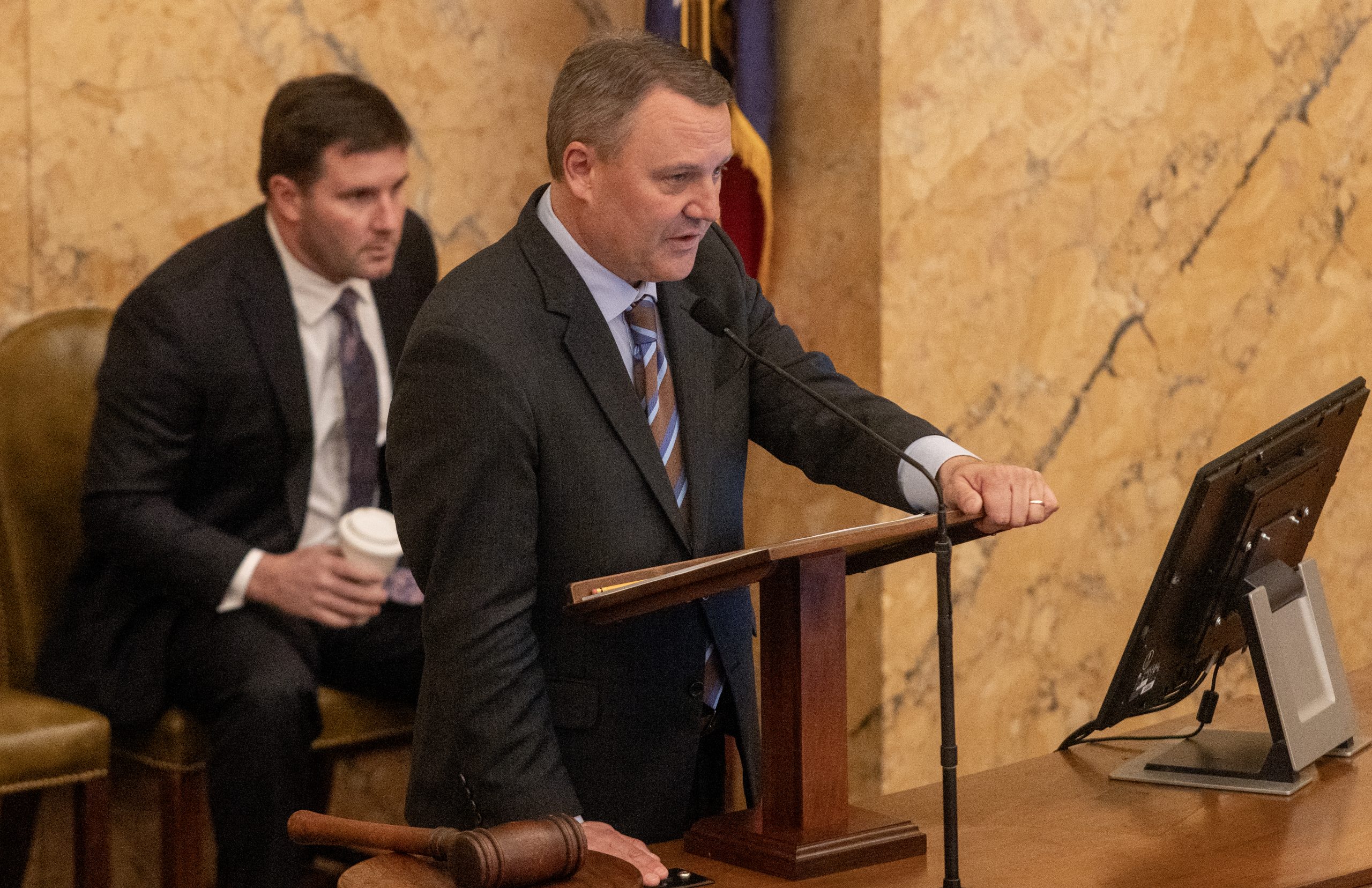Most everyone at House Speaker Jason White’s tax summit said they support cutting taxes – even eliminating the personal income tax — but there were concerns expressed by many on whether that goal could be accomplished without negatively impacting vital state services.
White’s chair of the tax-writing House Ways and Means Committee, Rep. Trey Lamar, R-Senatobia, told the crowd gathered at a Flowood hotel Tuesday for the daylong summit that the upcoming 2025 legislative session is the time to begin the process of phasing out the income tax.
“I believe it is time to make really big transformative changes in our tax system,” Lamar said.
He said eliminating the income tax would make the state more competitive.
On the other hand, Sen. Jeremy England, R-Ocean Springs, said he also supported tax cuts, but said “baby steps” might be needed to ensure funds are available to pay for state services.
Josh Harkins, R-Flowood, the chair of the Senate’s tax writing Finance Committee, cautioned that time might be needed to see the results of previous massive tax cuts passed in 2022 and in 2016 that are still being phased in. Plus, Harkins pointed out that the state and its citizens received about $33 billion in federal COVID-19 relief funds that have artificially bolstered state revenue. He said time might be needed to look at the financial condition of the state’s after the impact of those COVID-19 funds had faded.
White, who organized the summit that had more than 500 people registered to attend, stressed that there were no preconceived notions on what the House leadership’s recommendations for tax changes would be during the upcoming session. White said he had the summit as part of an effort to discuss and build consensus on improving the state’s tax structure.
But both White and Lamar have voiced strong support for phasing out the personal income and also for at least reducing the state’s 7% tax on groceries which is the highest of its kind in the nation.
Gov. Tate Reves, who also spoke at the summit at the invitation of White, also spelled out his reasons for supporting the elimination of the income tax.
He said Mississippi “was in the best financial situation … in our state’s history. Because of that there has never been a better time to eliminate the income tax.”
Harkins said eliminating the income tax would take about $2.2 billion out of state coffers. The grocery tax would reduce state revenue by less than $500 million.
Harkins said the state has many needs ranging from transportation infrastructure to shoring up the state’s public pension program that has a deficit of $25 billion.
Beside eliminating the income tax, Lamar said the goals of House leaders in their plan to make “monumental” changes in tax policy are to ensure cities and counties have sufficient revenue and “to fix” the funding issues at the state Department of Transportation.
Central District Transportation Commissioner Willie Simmons, D-Cleveland, and Transportation Executive Director Brad White said the 18-cents-a-gallon gasoline tax and other revenue directed to the agency is not enough. They said the agency needs an additional $480 million a year for road maintenance.
In recent years, the Legislature had provided an additional $1.3 billion to the MDOT in addition to the designated sources of revenue. But they said the agency needed an additional recurring revenue stream instead of having to wait to the end of each session to find out how much extra money the Legislature was providing transportation.
Other speakers included legislative leaders from other states that have worked on tax policy and national tax-cut advocate Grover Norquist. John McKay, executive director of the Mississippi Manufacturers Association, and Hattiesburg Mayor Toby Barker said the most important issues for companies are work force development and site preparation.
At the end of the day-long summit, White unveiled poll results compiled by nationwide Republican pollster Cygnal. The poll found 64% of Mississippians supported phasing out the income tax over a five year period.

